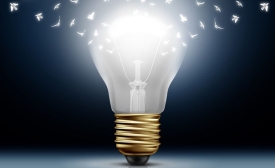korean wave

The country's unique approach to public diplomacy innovation provides valuable lessons for other nations, say Jan Melissen and Hwajung Kim.
A senior South Korean diplomat voiced concerns on Monday over Beijing's restrictions on Korean entertainers' performances in China, the foreign ministry here said as the countries remain at odds over Seoul's plans to deploy an advanced U.S. missile defense system.
Indians — especially the youth — are learning Korean, eating kimchi and travelling to Seoul to sample the life shown on their favourite TV dramas, and films [...] Over the last decade, K-pop and K-dramas, as well as their movies, have unleashed a tsunami of growth and popularity in India, and the numbers of avid fans continue to grow exponentially.
Changdong district, a relatively small residential commuter area, lies on the northern outskirts of Seoul. Home to a few hundred thousand people, it's an area that's growing but which has little cultural facilities or industry. [...] City planners hope that K-pop can do for Changdong what the Beatles did for Liverpool in the UK attracting both locals and tourists into the area, who could bring jobs and spending power with them.
The Korean Wave, or the popularity of Korean culture, is the best tool for South Korea in reaching American people and bringing the two countries' closer together, said a United States diplomat recently posted in Seoul. "I think the best thing to use is a soft power approach. The best thing Koreans have going for them in foreign countries is the Korean Wave," Brian Peterson said in an interview with Yonhap News Agency on Friday.
The sky over Seoul was bright blue and the lecture hall on the 19th floor had a perfect view of Bukhan Mountain and the Blue House. The room was filled with over fifty Korean diplomats engaged in the field of public diplomacy and cultural diplomacy.
At the Corea Image Communications Institute’s annual award ceremony last week, which honored individuals who have popularized Korean culture worldwide, over 60 foreign ambassadors and diplomats engaged in an evening of cultural diplomacy.
Vietnam and South Korea have long shared a historical and cultural background in sinocentric Confucianism and have encountered few cultural obstacles. It is not surprising, then, that the ‘Korean wave’ — or Hallyu — in Southeast Asia is said to have started in Ho Chi Minh City, where the first Korean drama series ‘Medical Brothers’ was shown in 1998.







